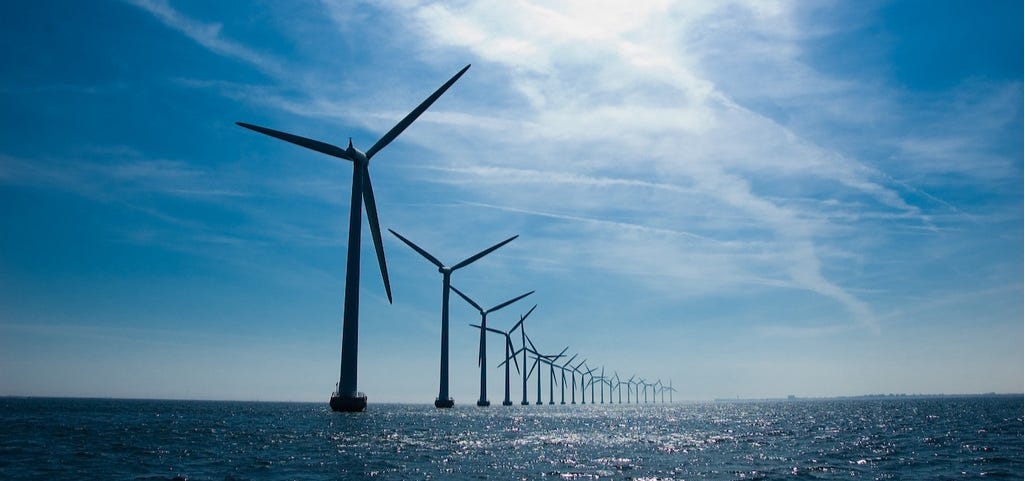Renewables account for 90% of new power capacity expansion globally.
Should we be optimistic or pessimistic about solving the climate crisis?
Those who are optimistic about tackling climate change will be happy to learn that 90 percent of the newly built power capacity worldwide comes from renewable energy.
Those who are pessimistic about the climate crisis will mention that global energy-related carbon dioxide emissions are projected to surge by 1.5 billion tonnes this year. That is the second-largest increase in history.
Who is right? Both statements are correct. They come from the same source, the International Energy Agency (IEA) in Paris. When reading the IEA's latest Renewable Energy Market Update, I thought about the latest released data.
What title would you have chosen for this article? One that presents the growth in renewables, or would you choose one that mentions this year's projected increase in emitted greenhouse gasses? I just had to answer this for myself, and I prefer the first option; let me tell you why.
Optimism or pessimism?
I have been communicating about climate change for many years. I am well aware of how easy it is to present a mood of optimism or pessimism in the audience while using only reliable scientific research. These two predictions are an excellent example of these statements' different effects; I notice them myself while typing these.
I wish that my background would have made me immune from emotional swings between pessimism and optimism. Sadly, it doesn't. Although I am not a climate scientist, I realize how much is at stake, how vulnerable the planet is to our disruption of the global ecosystems, how little time we have left, and how complicated international decision-making is. There is the risk that those of us who seriously worry about climate change decide to give up since the task ahead is too enormous.
We can do it
Still, for me, on most days, optimism wins. The longer I work on these issues, the more I am convinced that we can do it. We know what we need to do; we have the technology. It is economically the best way forward to take climate action, and preserve nature, now instead of waiting any longer.
Governments are stepping up their commitments. And if you say that it is too little and too late, I agree with the first part. What governments have pledged to do now is not enough, far from it. But it is not too late to avoid the worst of climate change. After four years of disastrous policies of the U.S., there is now a renewed engagement of the new administration with higher ambitions than ever before. It matters not only because the U.S. is historically the biggest emitter of greenhouse gasses or because it still is per capita emissions. It is important because the U.S. can lead. Let me put it in a negative formulation: it matters because, without their leading role, the world doesn't move forward fast enough.
Is it naive to be optimistic while we are in the opening chapters of the sixth extinction? I believe it is naive to think that we can still solve our enormous planetary challenges without a massive dose of optimism.
Shackleton
I am not sure how many books I have read about polar exploration, dozens certainly. I guess at least five about Shackleton. (A glance over my shoulder on my bookshelves tells me it should be at least seven. No eight, I am rereading South). And then there are many more books in my library about maritime history and exploration.
A common theme in these books is the human ingenuity to find the most daring and creative solutions when all hope is lost. Whether it is on the Endurance, the Apollo 13, or all of us right now on this planet, in each case, we needed inspiring leaders during an unexpected existential crisis. Leaders who were willing to forget about all existing protocols and dared to think out of the box. The most successful ones worked with everyone involved and were optimistic that they could succeed when most people gave up all hope.
Believe that we can
With hope and a realistic dose of optimism, we get to work earlier and be more successful. That's why I dare to use the word optimism while we are in an existential crisis that will undoubtedly get worse before we can find our way out.
Vote for leaders that accept science, understand the risks, that care for their people, and are willing to lead us out of this ecological mess towards a greener, healthier, and happier future. You can play your part, don't rely only on their top-down approach; a greener planet starts just as well with your own choices as you make them many times per day. One of them is believing that we can.
Notes:
Photo: "Windmills at the windmill farm Middelgrunden" by andjohan is licensed under CC BY-SA 2.0







Yes I can, yes I can. I very much like the small changes I make on a daily basis. The products I shop for, while wondering were they came from, I have grown a lot more conscientious now. How I use my living quarters, and questioning, is it cost effective, mostly energy use and water. Vehicle use is under scrutiny also.
Try the Navy Shower https://military.wikia.org/wiki/Navy_shower and see how much water is saved by this practice in this article (-:
I have interesting conversations about the state we are in at the coffee shop, although I do not drink coffee. Sharing some of the newspaper articles as we read them. Life is good sitting inside the coffee shop, compared to other parts of the living world out there. Even in our local environ are issues to deal with. It takes a willingness and effort to stay informed. Perhaps I may come up with a good idea. I'm in a good mood, also hoping that Willy the whale can continue his life wherever he chooses it to be . . . Thank you!
The eternal question: is the glass half empty or half full. I’m hoping when it comes to climate change the glass is half full. Our state is finally going to commit to building those windmills off shore. Of course the wealthy people on the East End managed not to have off their shores. Doesn’t matter that they probably would not impede the view since they will be 15 miles from shore. This type of thinking needs to end. Climate change affects everyone.
On a happy note river otters have returned to LI. Steps have been built by dams so they can easily travel and stay away from roads. Let’s hope the ingenuity of humans will also help with climate change.